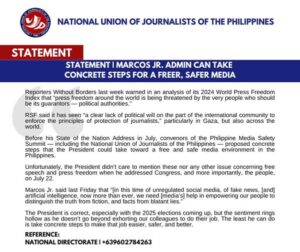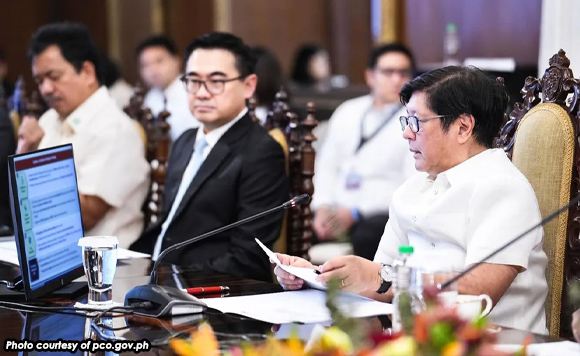Reporters Without Borders last week warned in an analysis of its 2024 World Press Freedom Index that “press freedom around the world is being threatened by the very people who should be its guarantors — political authorities.”
RSF said it has seen “a clear lack of political will on the part of the international community to enforce the principles of protection of journalists,” particularly in Gaza, but also across the world.
It also noted that more governments and political authorities “are not fulfilling their role as guarantors of the best possible environment for journalism and for the public’s right to reliable, independent, and diverse news and information.”
In the Philippines, NUJP has monitored 136 incidents of attacks on media workers during the Marcos Jr. administration, including the continuing refusal of the National Telecommunications Commission to lift its block order on the websites of Bulatlat and PinoyWeekly.
Colleagues have also reported that it is still difficult to get data and information from the government apart from what agencies release in their accomplishment reports and advisories sent to the media.
Libel remains a threat to journalists and, more broadly, to critics, dissenters, and citizens.
In remarks at the oath-taking ceremony for officers of the Association of Philippine Journalists (APJ)–Samahang Plaridel Foundation Inc. last Friday, President Ferdinand Marcos Jr. again promised government support “in ensuring the safety and welfare of all media workers and practitioners” and in “[fostering] an environment where members of the media can continue to freely practice their profession in a manner that is fruitful, rewarding, and meaningful.”
These are, of course, welcome and are better said than not. But they also need to be felt on the ground as much as heard in the halls of Malacañang.
Before his State of the Nation Address in July, convenors of the Philippine Media Safety Summit — including the National Union of Journalists of the Philippines — proposed concrete steps that the President could take toward a free and safe media environment in the Philippines.
Among these measures were the decriminalization of libel, the passage of a Freedom of Information law, and a declaration to end the dangerous practice of red-tagging by state actors and supporters regardless of a government denial that it is policy.
Unfortunately, the President didn’t care to mention these nor any other issue concerning free speech and press freedom when he addressed Congress, and more importantly, the people, on July 22.
Marcos Jr. said last Friday that “[in this time of unregulated social media, of fake news, [and] artificial intelligence, now more than ever, we need [media’s] help in empowering our people to distinguish the truth from fiction, and facts from blatant lies.”
The President is correct, especially with the 2025 elections coming up, but the sentiment rings hollow as he doesn’t go beyond exhorting our colleagues to do their job. The least he can do is take concrete steps to make that job easier, safer, and better. via NUJP | Facebook




